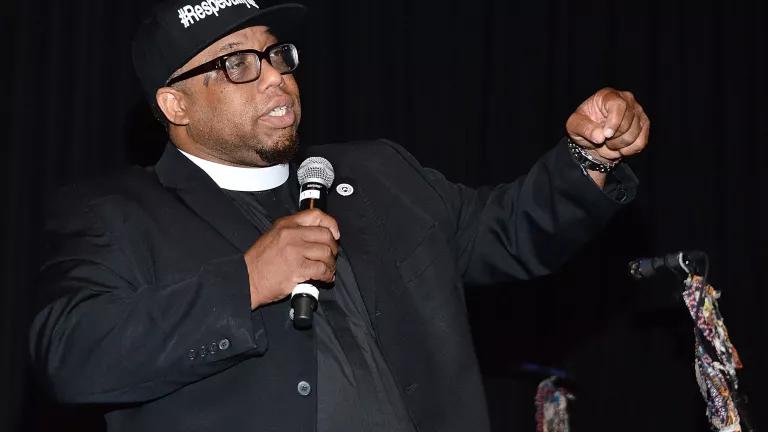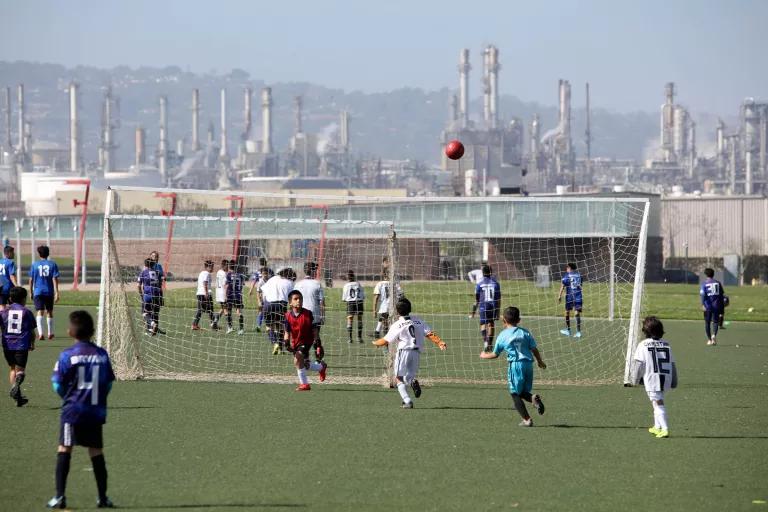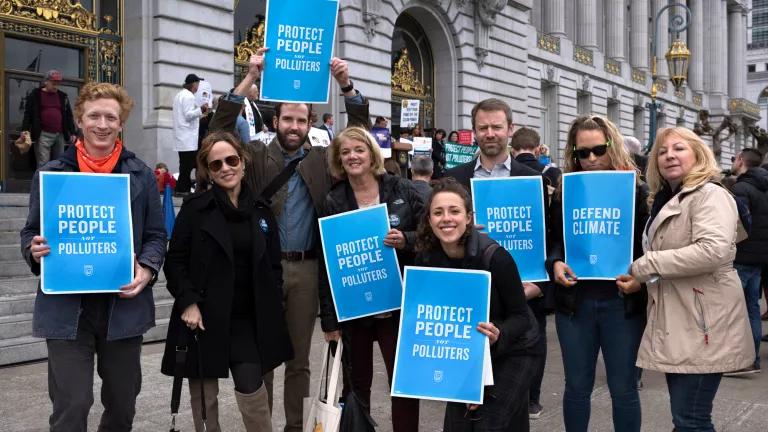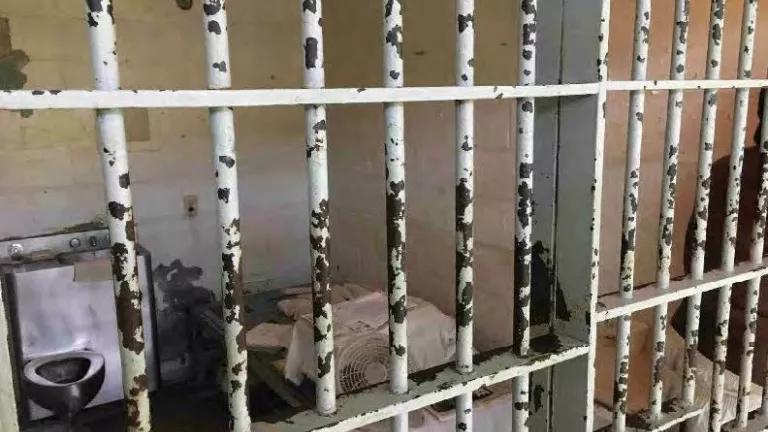Reflections from My Conversation About Racial Justice with EJ Champion Rev. Yearwood

Big Greens—including NRDC—must be about equity, justice, and climate, because when we break down racist systems, everyone will benefit. We are committed to making real change.
Gina McCarthy's conversation with Rev. Yearwood will be aired on the Think100% podcast, The Coolest Show.
I had the pleasure of reconnecting with my old friend, environmental justice champion, and Hip Hop Caucus president Reverend Lennox Yearwood Jr. recently for a conversation about racial justice. It was organized by the Network for Energy, Water, and Health in Affordable Buildings (NEWHAB), a national social impact network of Energy Efficiency for All, one of NRDC’s largest partnership projects, and you can listen to it in full on The Coolest Show podcast. And I wanted to share our conversation because I think it is particularly important for all of us during this time.
Next month marks the 15th anniversary of Hurricane Katrina, which started Rev. Yearwood’s journey into the climate space. As a Louisianan, he saw friends, family, and neighbors dying in the richest country in the world. He saw people who look like him, who grew up just like him, turned into refugees in their own country. At that time, he was an officer in the Air Force. He had signed up to fight for every American and saw his community drowning. Even before Katrina, an 85-mile stretch along the Mississippi River in Louisiana was called Cancer Alley because of the toxins and pollution from the fossil fuel industry. Because of these issues that hit so close to home, he has been engaged ever since, and I promise to stay right there alongside him.
I’ve been doing environmental, health, and equity work for a very long time. I’ve seen firsthand that the people most hurt from air pollution, who lack access to clean water, or who are exposed to hotter temperatures are always those who are the most vulnerable. Pollution is not an equal opportunity killer.
Rev. Yearwood spoke about the environmental movement and how there is no such thing as a single-issue struggle because we don’t live single-issue lives. We need to tear down the silos that separate people working on air, water, reliable energy, and homes and the belief that there’s a distinction between racial justice and environmental justice.
But many people are only now seeing that environmental justice is racial justice, and vice versa, for the first time. They are awakened to the fact that more Black people are dying from COVID-19 than others, largely because they are systematically exposed to pollution at criminal rates, living along highways or near ports and lacking access to healthy food or health care. As a result, they develop asthma, but whether they can get to a place to relieve that attack before it takes their lives is a significant question in many communities that have been left behind because of poverty, income inequality, or racism.

We have to be better. We need a systemic change and we need to get it right or we will miss one of our greatest opportunities to build a better world, and we can’t give up on that.
It is critical that all of us in the environmental movement recognize this if we want to be trusted voices. If we want to be effective advocates, we can’t walk around in ivory towers. We have to establish relationships with people, have conversations, and listen to people, not just tell them stuff.
I learned a lot from my Black, Latino, and Asian colleagues in Massachusetts and Connecticut while working on environmental justice policies. But my greatest learning came from my time at the EPA. That’s when I learned from colleagues like Mustafa Santiago Ali that you don’t go into communities selling solutions. You go in offering a hand and support and use it as a listening opportunity; when you do, that’s when lives will change. But, unfortunately, that’s not how environmental groups have always worked. That has to change.
On big-ticket policy issues like cap-and-trade and prices on carbon or electric vehicles, we’ve failed to make the fundamental connections between climate and humans and what it means for us and our health, including how solutions can benefit people today and drive demand.
People have not always been the focus, and we haven’t built that base of support and trust in the communities that are both most vulnerable and have the most experience fighting for change. There has been a rush to judgment and to craft policies and programs rather than build the tent for democracy in a way that progress demands.
Young people—and particularly young women of color—are leading the climate movement now. As Rev. Yearwood put it so well: “They are saying our parents fought for equality in the 20th century but in the 21st century, we’re fighting for existence.” I’m not surprised it’s women rising up. They demand change in a way that’s inspiring. They have incredible energy and power and will carry this issue generationally because it will take another 20 to 30 years of real pushing to make sure we can get a handle on the climate crisis. But just so everyone knows, I’m 66 and not going down until we fix this problem. I may be slower and grayer than I used to be, but I’m not patting them on the back and passing the baton. I’m still running, right alongside them—because I know we are stronger together.
As we continue to push progress forward, we must embrace racial justice and think about climate action in a systematic way or it’s not going to work. This is not a side issue; this is the world we live in. It’s not about light bulbs or cars. It’s about our neighbors' health and whether they can live whole lives.
And I’m excited about what we’re going to accomplish when we do that.
Here at NRDC, for example, our Energy Efficiency for All program is breaking ground, and it's work like that of NEWHAB that helps us understand it’s people we’re serving, not polluters. NEWHAB connects income, jobs, and housing with the economy and environment, but they’re looking at it in a way that connects the dots and they’re using it as an opportunity to nurture relationships with community advocates instead of turning away from them. And our Strong, Prosperous, and Resilient Communities Challenge (SPARCC) program is a community-driven effort to move forward issues of race, equity, and income.

Local grassroots and environmental justice groups have been trying to make this a movement for a long time, and we Big Greens haven’t always been building and supporting their capability and capacity—but we’re committed to changing that. We must be about equity, justice, and climate, because when we break down racist systems, everyone will benefit.
We also have to listen to the people of color who work with us—and for us. We have to look at our own culture and how our colleagues are being treated from their perspective. We have to improve hiring practices and increase mentorships, fellowships, and internships. We have to bridge cultural divides in a way that gives everyone an opportunity to learn. We are in a learning moment and we must do the work to ensure our Black colleagues see that we’re here for them and to move them forward and give them the recognition, money, and opportunities for advancement that they deserve.
As Rev. Yearwood says, I hope and pray the next generation looks back on us and sees that we fought the good fight—that we worked together and demanded change to build a better world. I’m going to do everything I can to make sure that’s the case.



